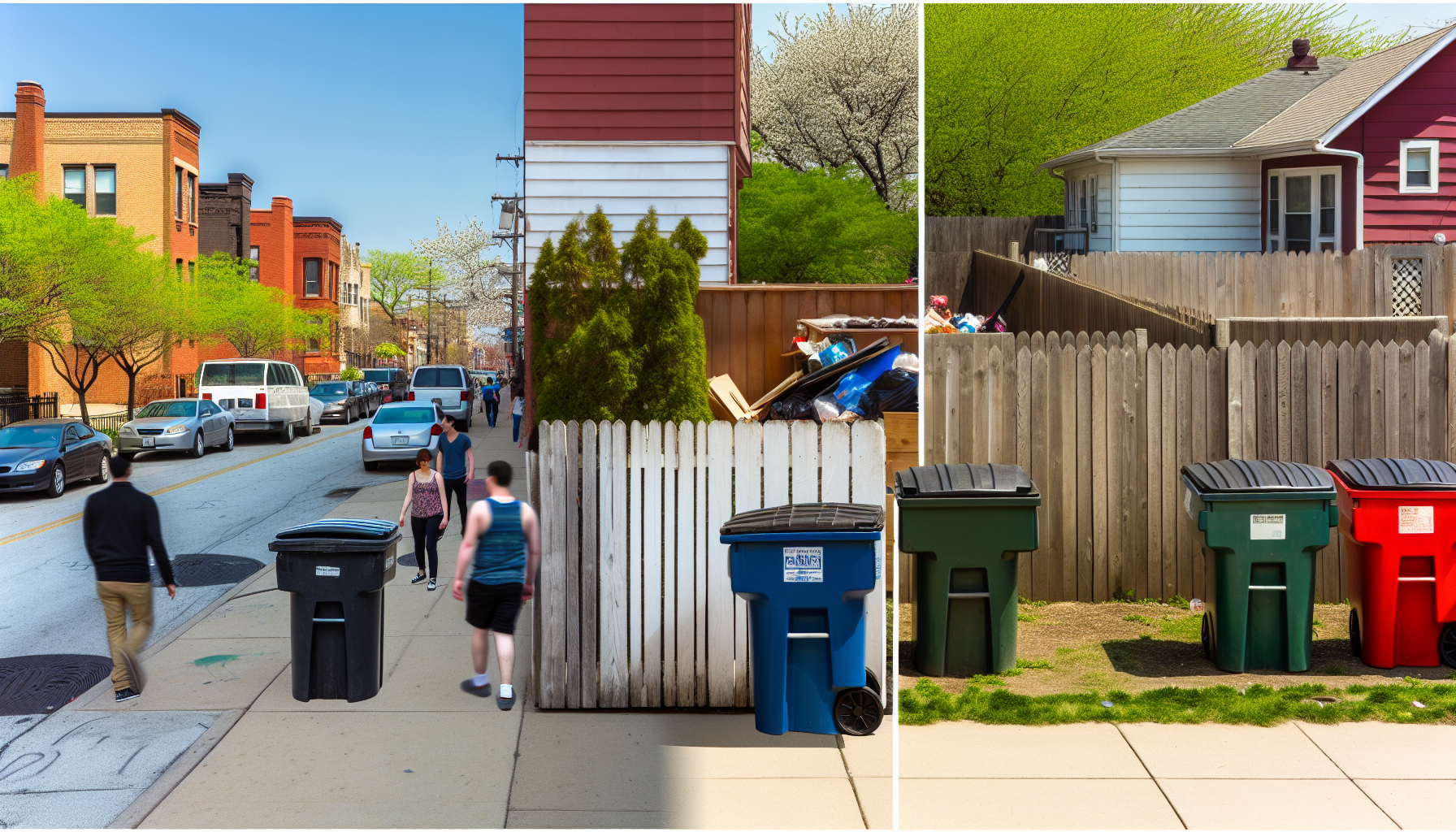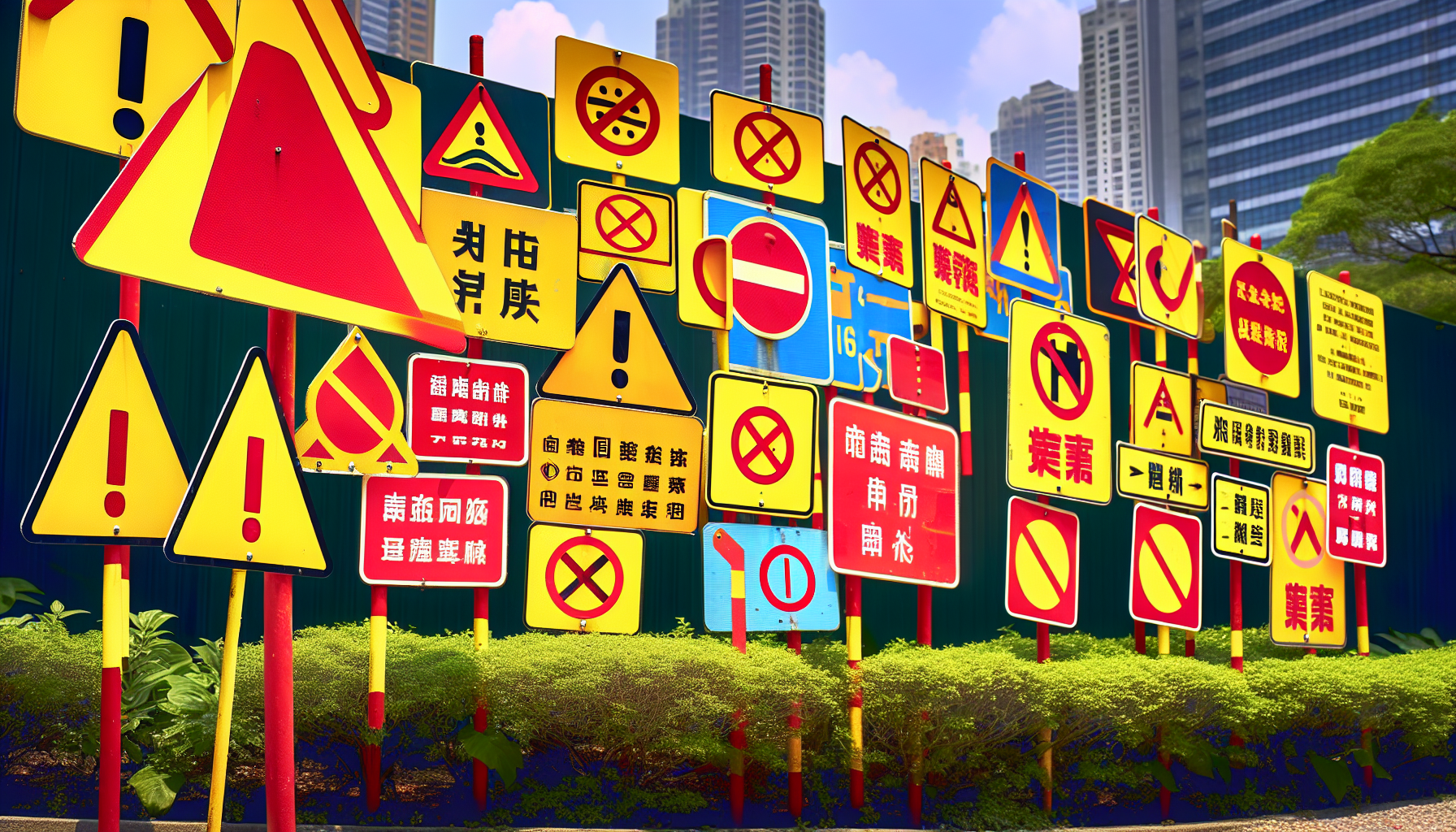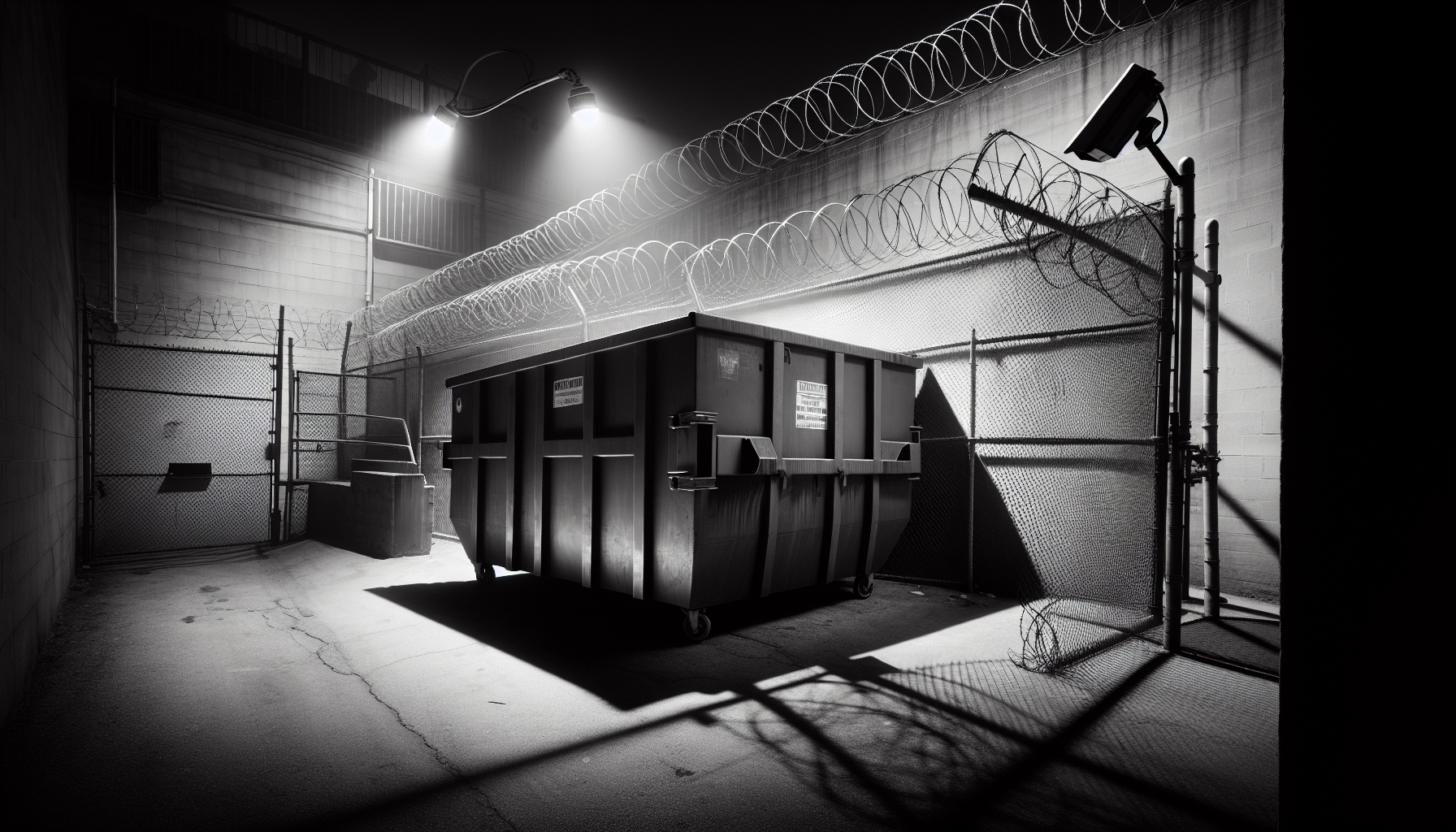Are you wondering, “is it illegal for someone to go through your trash?”
The simple answer is: not necessarily.
Once your trash hits the curb, it often becomes public domain.
However, the rules can vary greatly, with factors like location and whether the trash is on private property coming into play.
In this article, we’ll dive into the legalities of dumpster diving, from Supreme Court rulings to local ordinances, so you understand when trash picking crosses the line into illegality.
Key Takeaways
- Once your trash is put out on the curb, it’s considered public domain and isn’t your property anymore, but local laws dictate the nuances of legality for dumpster diving.
- Dumpster diving on private property can lead to trespassing or theft charges, so it’s crucial to know the difference between public and private spaces when diving.
- To avoid legal issues and identity theft, shred sensitive documents before disposal and businesses and homeowners should use security measures to deter dumpster diving.
Navigating the Legal Landscape of Trash Ownership

The legality of rummaging through dumpsters is based on the principle of ownership over trash.
While one may assume that discarded items no longer belong to them, this may not always be true.
According to a 1988 ruling by the Supreme Court, searching through garbage is permitted as long as it takes place in public areas and not on private property.
Dumpster diving itself isn’t considered illegal.
Its legal status changes when performed on privately owned land.
Under certain circumstances outlined by law, trash loses its classification as personal property once it’s been disposed and no longer serves its original purpose, for instance being placed out at the curb for collection.
The question then arises: when does something become legally classified as trash instead of someone’s possession?
Furthermore,people should understand their rights regarding their belongings if they’re left unattended or abandoned within curbside receptacles.
Regardless, dumpster diving can potentially cross into trespassing territory depending upon where these activities occur.
When Does Trash Stop Being Private Property?
Abandonment in property law refers to the deliberate relinquishment of a known right.
It is comparable to intentionally leaving something behind and giving up all ownership claims, including one’s trash.
In essence, when garbage is placed on the curb for collection, it enters the public domain and ceases to be considered personal property.
Nevertheless, regulations regarding abandoned items vary among states.
Depending on your location, discarded waste may be deemed available for others’ use without repercussions.
Nevertheless,dumping laws differ from state to state.
Therefore, it is recommended that individuals research their respective area’s rules along with relevant county ordinances.
The Curbside Doctrine: Understanding Your Rights
The concept of the curbside doctrine is a legal principle that provides clarity on our rights regarding trash.
This doctrine states that items placed in garbage cans outside our homes, which are usually located on public city streets, may not be considered as personal property.
As a result, this can have implications for our privacy as it undermines the expected level of confidentiality associated with curbside waste.
Essentially, this means that throwing away sensitive materials like prescription information or bank statements into your household’s trash bin could potentially make them fair game for dumpster divers once they reach the curb.
While initially focused on matters concerning trash disposal and collection practices within cities, the Curbside Doctrine also has significant relevance to issues surrounding individual privacy protection.
Is There a Difference Between Trash Cans on Private Vs. Public Property?
Navigating the legality of dumpster diving can be a complicated task, especially when it comes to the location of the trash receptacle.
According to a federal appeals court ruling, law enforcement does not need a warrant to search through trash placed for collection in publicly accessible areas near private homes.
Things become more complex if the dumpster or trash bin is on private property.
In these cases, individuals may face charges for trespassing or theft if they attempt to go through discarded items without permission.
It’s important for anyone interested in dumpster diving on private property to obtain consent first and stay informed about local laws regarding this activity.
Dumpster Diving: A Legal Gray Area or Fair Game?

While dumpster diving was declared legal in all 50 states by a Supreme Court ruling in 1988, the actual legality of it may not be clear-cut. Depending on local laws and city ordinances, dumpster diving can either be allowed or banned, creating some ambiguity around its legality.
For example, while most cities in New York permit dumpster diving, it is prohibited in New York City. In California, California is a state called California.
It is permissible, but certain cities like Los Angeles have regulations against it. The situation is unclear in Chicago. So how can one navigate this complex web of laws? Let’s explore further.
Local Laws and City Ordinances Impacting Dumpster Diving
The legality of dumpster diving can be affected by local laws and city ordinances. While it is acceptable, specific regulations on trespassing and trash in certain cities may make this activity illegal.
To determine the rules for dumpster diving in your area, consult your city’s municipal codes or search for “garbage ordinances.”
These resources will outline any restrictions related to trespassing and other guidelines pertaining to dumpster diving.
It is important to stay informed about these laws in order to avoid breaking them unintentionally.
State and County Websites: A Resource for Legal Clarification
State and county websites are excellent resources for learning about the legal aspects of dumpster diving.
This activity is accepted in all 50 states, as long as it follows local regulations and state laws.
It’s important to be aware of any city or county ordinances that may apply before engaging in this practice.
Rules can vary from one state to another and even between different counties within a state. For instance:
- In Connecticut, Section 35-51 outlines specific laws regarding dumpster diving.
- West Virginia has more general guidelines on privacy tips when it comes to trash.
- Wisconsin considers dumpster diving a violation according to statutes (s.134.97).
-In Washington, there are laws against unlawful transit conduct which could also pertain to rummaging through charity bins.
Conducting thorough research beforehand is crucial if you plan on partaking in dumpster diving activities legally without violating any existing ordinances or laws related to such practices.
Trespassing and Theft: When Dumpster Diving Becomes a Crime
Even though dumpster diving itself may not be considered against the law, it is important to note that trespassing and theft are illegal activities.
Trespassing in relation to this practice includes entering private property by jumping over a fence, going through gates or any other means for the purpose of accessing dumpsters.
Such actions can have serious consequences as they violate legal boundaries.
Engaging in dumpster diving without permission on privately owned locations or areas marked with no trespassing signs goes beyond what is allowed by law.
This could result in repercussions if caught, such as getting into trouble with authorities or facing penalties imposed due to these unauthorized acts on someone else’s property.
Recognizing Warning Signs and Off-Limits Areas

When engaging in dumpster diving, it’s important to be aware of warning signs and areas that are off-limits.
If you come across any indications such as fences, locks, ‘No Trespassing’ signs or verbal warnings against trespassing while searching through trash bins for treasures on private property.
To ensure you’re not unintentionally entering someone else’s land without permission, it is recommended to consult a licensed land surveyor who can accurately determine the boundaries of the property and mark them with visible markers like brightly-painted angle irons or pipes.
Remember that dumpster diving isn’t just about finding valuable items. It also involves respecting other people’s rights and properties.
Consequences for Illegally Accessing Someone’s Trash
There are severe consequences for crossing boundaries while dumpster diving.
Being caught digging through someone’s trash could result in penalties, such as fines or even an arrest with potential jail time.
Possible charges include illegal dumping, littering, theft and trespassing.
Trespassing on private property carries additional serious ramifications if you ignore warning signs, create a disturbance or pick locks to access dumpsters.
The repercussions vary by state but can lead to hefty fines and up to six months of incarceration.
It is crucial to always respect the limits set around private properties when engaging in dumpster diving activities.
Protecting Yourself from Unwanted Trash Pilfering
The famous proverb “prevention is better than cure” holds true for dumpster diving as well.
Taking measures to protect yourself from unwanted rummaging through trash and properly disposing of confidential materials is crucial in order to prevent identity theft and fraud.
The most effective way to dispose of sensitive documents is by shredding them using a paper shredder, preferably one that crosscuts the papers into thinner strips.
It’s important to also consider waste removal employees when discarding such information.
It’s essential for these workers to have limitations and responsibilities regarding handling trash items.
Best Practices for Discarding Sensitive Information

When it comes to disposing of sensitive information, shredding is by far the most secure option.
This includes personal details, financial records, medical documents, legal papers and any confidential materials related to your business, none of which should be simply thrown in the trash.
Shredding effectively eliminates sensitive information by breaking it down into small pieces that are nearly impossible to reassemble.
This prevents unauthorized individuals from accessing this material and using it for fraudulent purposes.
And if you have old hard drives containing important data? Shredding them is also the safest way to dispose of them.
So remember not to discard valuable information carelessly.
Always opt for proper disposal methods such as shredding when dealing with potentially harmful or compromising materials like legal papers or other items that may contain private data.
What Waste Removal Employees Can and Cannot Do
The important role of waste removal employees involves the handling and processing of various types of waste.
To going through trash for proper disposal, these individuals have certain legal responsibilities and limitations.
Specifically, it is their duty to ensure that hazardous waste is disposed of correctly without being mixed with non-hazardous materials.
They must also receive OSHA HAZWOPER training and adhere to regulations outlined in the Resource Conservation and Recovery Act (RCRA).
They are prohibited from disposing or exporting hazardous waste without appropriate authorization while following all RCRA guidelines.
Preventative Measures for Businesses and Homeowners
Dumpster diving, although seemingly harmless, has the potential to become a nuisance for both businesses and homeowners if not properly managed.
Fortunately, there are several precautions that can be taken by these parties to discourage dumpster diving and promote responsible waste disposal.
These preventive measures include actions such as implementing recycling initiatives, composting practices, reducing excess packaging materials, and switching to paperless options.
Not only do these steps benefit the environment, but they also minimize the amount of waste that may attract individuals looking through dumpsters for usable items.
To ensure secure dumpsters and proper disposal of recyclable items from businesses or households alike is carried out effectively.
In order to prevent unwanted access by dumpster divers while also properly disposing of recyclable materials at all times, garbage management should aim towards maintaining secure bins along with strict monitoring policies in place.
Such preventative measures will guarantee safe storage solutions and efficient handling of any discarded items within the container.
Encouraging Responsible Recycling and Donation
Promoting responsible recycling and donation is an effective approach to reducing waste and discouraging individuals from engaging in dumpster diving.
One way to achieve this is by increasing the availability of recycling bins in public places, encouraging businesses to promote recyclable items, lowering the costs of recycled materials, and educating local communities through various media outlets.
Many valuable goods that are often discarded into dumpsters could instead be donated for a better cause.
Examples include furniture, clothing, blankets, toys, kitchenware like pots and pans, and some appliances.
By donating these items rather than throwing them away in the landfill or dumpster, you can positively impact someone’s life while also contributing towards preserving our environment.
To make a difference in protecting our planet Earth, it’s important to collect all possible recyclable items.
As they say, “One person’s trash is another one treasure” by properly disposing of such unwanted material we not only keep it out of landfills but also reduce pollution levels.
By spreading awareness about the benefits of responsible recycling practices, you too can play your part in creating a sustainable future.
Because every action, no matter how small, is crucial for conserving natural resources.
Implementing Security Measures Around Dumpsters

Installing security measures around dumpsters can be crucial in preventing unauthorized access and potential legal complications. Some possible steps to consider include:
- Erecting a fence
- Using designated dumpster locks
- Installing outdoor lighting
- Utilizing surveillance cameras and motion detectors
These precautions will help ensure the safety and protection of your dumpster area.
Well-lit surroundings discourage illegal entry, while CCTV monitoring deters unlawful dumping.
For homeowners, securing garbage bins with locks is an effective way to prevent unwanted theft of trash items.
Putting out recycling only close to pickup time can also mitigate any risk associated with leaving it unattended for extended periods.
Summary
To wrap up, dumpster diving is a complex issue straddling the fine line between legality and illegality.
It’s crucial to understand the legal landscape surrounding trash ownership and dumpster diving to ensure you stay on the right side of the law.
Whether you’re a dumpster diver, a waste removal employee, a business owner, or a homeowner, responsible waste disposal and respect for property rights are key.
With proper knowledge and precautionary measures, we can ensure that dumpster diving remains a harmless activity rather than a nuisance or a potential legal issue.
Frequently Asked Questions
Are people allowed to dig through your trash?
It is typically permissible for individuals to sift through trash that has been left in a public area for collection. Once the garbage is deposited in such a location, it becomes public domain and ownership rights are relinquished by its original owner.
Others have the right to go through this discarded material without restriction.
Why would someone go through my trash?
Your garbage may be rummaged through with the intention of finding personal details, such as financial papers, which could lead to identity theft or deceitful acts.
To safeguard against potential risks, it is crucial to properly discard confidential materials.
Is it legal to dumpster dive in all 50 states?
While dumpster diving is allowed in all 50 states, it’s important to note that there may be restrictions set by local laws and city ordinances. It’s advisable to familiarize yourself with your area’s regulations before engaging in this activity.
So go ahead and dive into those dumpsters legally! Just make sure you’re aware of any specific rules.
Can waste removal employees go through the trash?
Waste management workers are permitted to sort through garbage in order to effectively manage and dispose of waste.
What are some preventative measures for businesses and homeowners to discourage dumpster diving?
In order to deter individuals from going through dumpsters, it is important for both businesses and homeowners to prioritize practices such as recycling, composting, minimizing packaging waste, transitioning towards paperless options and securing their dumpsters and bins. This can effectively prevent unauthorized access to discarded materials.

